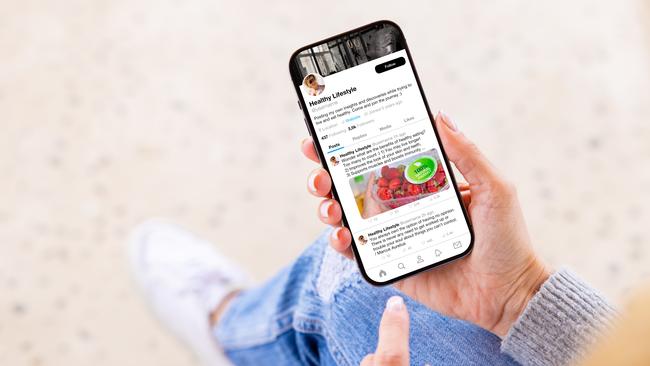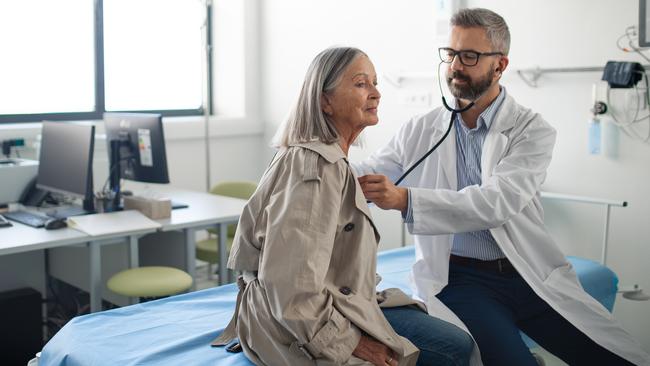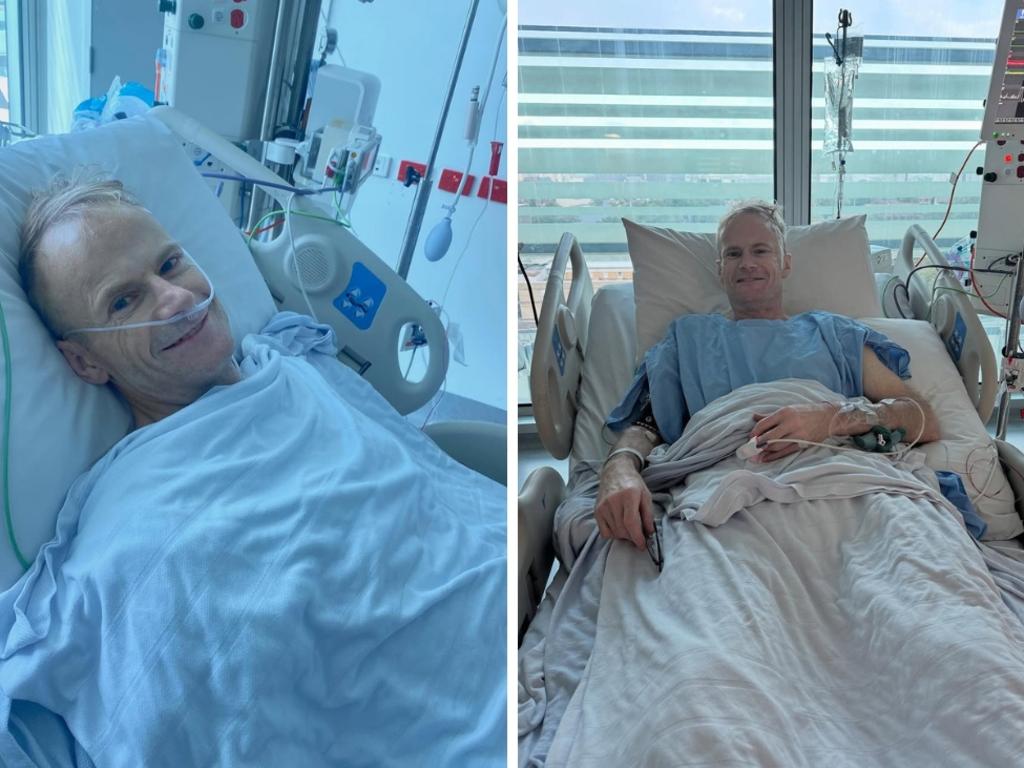What’s causing headaches for Australian doctors
Are doctors and patients losing trust with each other? And how far is advice from social media influencers reaching into the consultation room?

Melbourne family doctor Karen Price had a shocking experience recently. “I went to a social event with a group of professional women,” she said. “They were talking about how to lie to the doctor to get a prescription that they wanted. And if their own doctor wasn’t going to do it, they could go to another doctor.”
Dr Price, a former president of the College of GPs, was highlighting what has become a common problem in the doctor-patient relationship: a breakdown in trust.
Patients, influenced by social media, have lost trust in their doctors; but the relationship goes both ways and it seems many doctors have issues with their patients too.
An article in The Wall Street Journal recently suggested that American patients trust social media influencers more than their doctors when it comes to health advice. It provoked a response from American doctors – who pointed out that sometimes patients don’t tell the truth about their symptoms, their treatment plans, or how much they drink and exercise.

Are things any better between Australian doctors and their patients?
There’s plenty of evidence that Australians are turning to social media for their health advice, just like American patients. Competing with online health advice has been giving Australian doctors headaches for a while. But has it become more disruptive? Is there suspicion and misinformation where once there was curiosity?
“People are interested in health, and they’re trying to make sense of the information that’s coming at them,” says Dr Price. “In the past they would bring in their newspaper cutting about treating cellulite or whatever. Now we’ve become communities based on our social media alliances.”
Dr Vinay Rane, a Melbourne obstetrician, goes further. “There’s absolutely no question that what influences patients’ decisions is, increasingly, coming not from the medical space but from the celebrity space,” he says. “We see celebrities ranging from celebrity chefs through to people in the film and sports worlds, who cross over into talking about wellness and health and a variety of other things.
“As a result, people tend to get a lot of their information from these celebrities – presumably because they’re just marinated in it, and they’re always attached to their phone and they keep getting alerts from the people they follow.
“A patient says something along the lines of, ‘I’ve heard that…,’ and then it’s followed with something that’s complete nonsense. I ask them where they heard it from. They tell me that they saw it on their feed.”
“There are a lot of people trying to get your money, your healthcare dollar. So we talk about that and hopefully that gives them a perception of trust”
Dr Price doesn’t necessarily see social media advice as a negative. “I say it’s great that you’re interested in your health, and I’m really pleased you brought that to me,” she says. “Let’s have a discussion about it. I don’t mock them or look down on them for having an interest in their health. Why would I?
“Then I provide what I hope is factual evidence,” she says. “I might even Google what they’re talking about and then provide commentary on it, and then provide a recognised website.”
Dr Price also provides a warning: “There are a lot of people trying to get your money, your healthcare dollar. So we talk about that and hopefully that gives them a perception of trust.”
Dr Rane sees his patients’ devotion to social media influencers as a particular issue in maternity care. “In the obstetric space I think part of it is because, inherently, these patients are not sick. They see the doctor-patient relationship as a backup, or an insurance, if they do become unwell rather than getting their day-to-day counsel from doctors.”
He draws a distinction between healthcare and wellness advice. “It becomes very attractive for people to say, well, you know, I am young, fit, I’m healthy. I don’t actually need to see a doctor as much.”

The trust between patients and their doctors is fundamental to healthcare, but many Australian medicos sense pressure on their therapeutic relationships as social media and other online sources disrupt the traditional models of care.
Sydney GP Dr Michael Bonning sees both risk and opportunity in the disruption. “I think overall it’s probably a negative,” he says. “There are people who look at things judiciously. They ask themselves how it might help if I subscribe to a social media channel that does healthy eating and good recipes, right? But that’s overshadowed by social media algorithms that drive people towards the more controversial or more fringe thinking in any particular area.”
Dr Bonning says more controversial topics are often the ones that get more interaction and engagement.
“Me saying something about diet and exercise being really important is far less attractive than someone telling you what’s this one easy trick to get rid of belly fat or something like that,” he says.
“Unfortunately, expert health information often sounds pretty boring. You’ve probably heard it a million times before. People can’t resist the quick pathway – you know, just take these supplements,” says Dr Bonning.
“People with the most insecurity about their health and the least access to reputable health information are vulnerable. Social media preys on people who are isolated, alone and don’t have good access to information. I think that’s a challenge.”
While obviously it is critical that patients trust their doctors, reciprocal trust in patients is something that fuels successful healthcare outcomes. Dr Price says that over her career she has seen an erosion in trust between doctor and patient. “It’s really important that the trust goes both ways – really, really important because the patients benefit.”
Fellow GP Dr Nicole Higgins sees similar issues in her own regional Queensland practice. “Many GPs feel an expectation that if their patient wants or demands something then they’re expected to give it, even though it might cause an adverse impact or is outside of our guidelines,” she says.
“I think that’s where the rub is,” says Dr Higgins. “People don’t understand evidence and science and the reason that we make the decisions that we do – that there are regulations that we have to work within. Many patients now see a consultation as a transaction, that if they’re paying for service they expect a certain outcome.
“Trying to find that balance between the relationship and developing trust versus it being a transaction is the future of what we have to navigate.”
Dr Bonning, whose practice is based in inner Sydney, shares these concerns about the increasingly transactional nature of medical consultations. “For people with multiple chronic conditions, my time horizon for solving problems is months to years to decades,” he says. “That’s the kind of relationship that I want to build, so an investment of my time that is frustrating now may well be something that hits the balance in the long run.”
“People with the most insecurity about their health and the least access to reputable health information are vulnerable. Social media preys on people who are isolated, alone and don’t have good access to information. I think that’s a challenge”
There is a real challenge in the number of people who walk in and ask for Ozempic, the weight-loss drug for diabetes. “We know that behavioural modification, exercise and dietary modification will do the same thing – but they’re much harder for patients to stick with,” Dr Bonning says.
“My patients say, well I’ve seen Ozempic online, and I can lose this much weight, I can feel this much better. And so they are hard discussions to have. The only way you can have them – to meaningfully get through to people – is if they trust you.”
Trust between doctor and patient is rarely guaranteed and easily lost. “Many people may not have had the greatest interactions with the medical profession,” says Dr Bonning. “Why would they seek out more information from doctors? They feel in the past that their health issue has been marginalised, minimised, been told that it was just their own fault.”
Providing care to patients is also increasingly hampered by administrative burdens and red tape, which cut into face-to-face time with patients. “A lot of time is spent not facing the patient, not engaging with them in what they need from a clinical perspective,” says Dr Bonning. “That’s time dealing with the hurdles and barriers that are thrown up by many, many different administrative systems.”
Dr Higgins agrees. “If we have a patient in palliative care, for example, who requires a script for a narcotic, not only do we have to get an authority from the federal government, but also from our state health system,” she says. “It all involves lots of time.”
Time lost to paperwork is not necessarily time wasted, says Dr Bonning. “Patients are incredibly appreciative of the time that is spent. They understand that it’s not the most important clinical thing, but often it’s something that allows them to get on with their life and it allows you to build trust.
“You’re the person to help them solve a problem in their life. So you can springboard from that into the therapeutic relationship to help develop further trust in a medication change that we want to make, or a behavioural modification that we’re going to share decision-making on.”

Despite the challenges and disruptions to the doctor-patient relationship, the news isn’t all bad for Australia’s family doctors. Dr Higgins says that, for her, “the joy of general practice is having relationships with patients and their families. I’ve lived in a regional area for over 20 years and the relationships with my community, with patients, is what brings me satisfaction in the work that I do.
“We keep people out of expensive hospitals,” says Dr Higgins. “We prevent illnesses getting more severe, from requiring more expensive and intense treatments. The relationship between a patient and their doctor has always been one of those sacrosanct relationships in life.
“We know that continuity of care, where people who have a longstanding relationship with their doctor, actually gets the best outcomes in their health,” she says. “So we need to make sure that we don’t have medicine that’s reductionist, that’s fragmented, that’s transactional. Because in the end it actually costs more money, and it costs patients their health by causing harm.”
Steve Robson is professor of obstetrics and gynaecology at the Australian National University and former president of the Australian Medical Association.
This column is published for information purposes only. It is not intended to be used as medical advice and should not be relied on as a substitute for independent professional advice about your personal health or a medical condition from your doctor or other qualified health professional.




